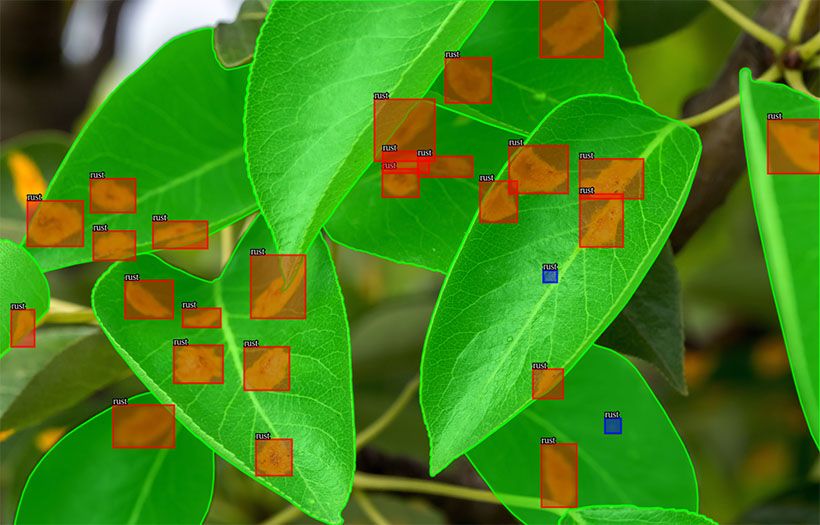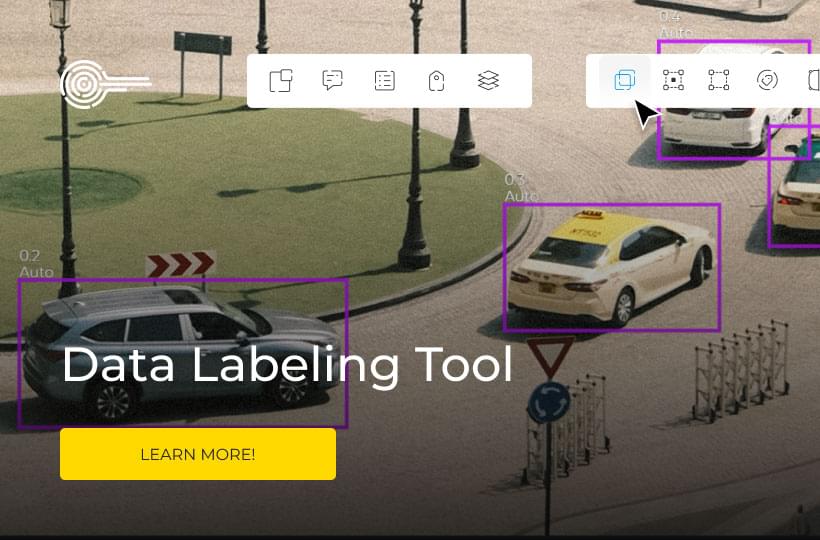10 Ways AI, and a Labelling Tool, have the Potential to Improve Agriculture in 2022
Artificial Intelligence (AI) and Machine Learning (ML) are innovative parts of the technology spectrum, but they cannot help in the agricultural industry, can they? With an image labelling tool and one that also manages video, such as Keylabs, you can create power systems that have the potential to improve agriculture right now. With Keylabs, you have access to one of the best data labelling tools. Read on to find out how it can help AI and ML be effective in the agricultural world today.
Is the Global Agricultural Industry Showing Growth and Expansion in 2022?
A report by Markets&Markets in 2021 predicts that AI financial outlay in the agriculture sector will expand from 2020’s amount of $1 billion to $4 billion within six years. This shows that the industry is not only growing, but those who work in this sector are willing to invest in the latest technological systems, including AI and ML, to improve yield, security, expansion, and revenue.
BI Intelligence Research states that the global amount spent on agricultural systems that are both smart and connected will triple in revenue in the next 3 years, including AI systems that include the use of a video labelling tool. With the world’s population expanding, there will be an increased demand for food supplies over the next 30 years globally. This shows that the agricultural industry will also grow to meet demand.

How Can Image and Video Labelling Help Growth in AI Systems?
For both ML and AI implementations, computer systems need accurate data. For example, show an average adult human in the developed world a photograph of a street scene. They will be able to easily identify shops, houses, vehicles, and people within the picture. This is because we have learned, throughout our lives, what each object is and its characteristics.
Computers need to learn for AI to work and develop. The computer needs each object labelled to identify the objects in an image or video feed. AI systems will then be able to recognize those objects when they are ‘seen’ by a camera connected to its system. Platforms such as Keylabs have streamlined the labelling process and can be used as an image labelling tool for object detection and a video object detection labelling tool.
10 Ways Artificial Intelligence Could Improve the Agricultural Industry in 2022
1. Yield Prediction
By machines learning from a labelling tool for AI, smart sensors and footage from drones can be mapped into a 3D image, and computers can predict the yield of each field before the crops have even been planted. Then, the soil condition and color are interpreted, and a potential yield map is calculated.
2. Surveillance Security
Using AI and object recognition, the feed from live surveillance cameras can be monitored continuously for any breach of the perimeter fence of a field. The AI can detect animals that may damage crops and human entry into these valuable fields. This will work for a huge, multi-field farm as easily as for a smallholding.
3. Smart Farm Tools
In the current climate, there is a lack of human agricultural workers. Many owners find recruiting workers to their land challenging, especially on larger farms that need many more people. With AI, sensors, and ML, smart tractors and robots can perform a variety of tasks that workers would once have executed.
4. Yield Sensors
Like the yield prediction example above, crop yields can be accurately predicted using real-time data from ground sensors that can detect fertilizer levels in the soil. Drone footage and cameras can analyze crop growth over time, and the machines can adapt their predictions.
5. Price Determination
By predicting the yield of each crop and field, co-operatives and farmers can determine the total volume of their harvest before harvesting takes place. This allows for the negotiation of the best possible price for their crops. Also, those buying the harvest know exactly what they will receive in advance so that they can plan accordingly.
6. Pest Control
The United Nations (UN), and large agricultural businesses, are using AI and ML together with specialist drone footage using an infrared video feed. Through this system, the detection of pests can occur due to the intelligent monitoring of plant health over time. This means the landowner can act quickly to avoid devastating their crop.

7. Limiting Pesticides
Smart sensors, combined with AI and ML, can inform agricultural workers where a pesticide is needed. They can keep costs to a minimum and increase yield by only targeting the crops that need the use of a biodegradable pesticide rather than treating every crop on their land. The AI system can also calculate the best mix of pesticides, allowing the farmers to be more accurate in their treatment of pests.
8. Livestock Monitoring
Agriculture is not only looking after plant crops, and vegetation as some farms also have livestock to look after and manage. These animals can be monitored for vital signs, activity, and how much food they consume. AI can then interpret this data to determine their health, so the best level of health is achieved for each animal. This can improve profitability for the farmers and create happier, healthier livestock.
9. Greater visibility in Supply Chains
Since the COVID-19 pandemic started in 2020, track-and-trace systems have been put in place to ensure supply chains do not block food distribution to those who need it. AI can help monitor the distribution of food and materials from and to farms and distributors. This is being implemented across manufacturing as well as agriculture.
10. Irrigation
Irrigation systems, particularly in drought-ridden areas of the world, can be complex. AI, combined with smart sensors, can identify leaks within the irrigation system. This allows issues to be fixed as soon as possible, preventing valuable water loss and promoting the highest yields of crops possible.
Conclusion
Agriculture is an ever-expanding industry. It is now at the forefront of adopting cutting-edge technologies, including AI and ML. Using a labelling tool for ML or AI, objects can be mapped into a computer’s memory, identify problems, and help maintain healthy crops and livestock. Check out Keylabs for one of the best labelling tools.
